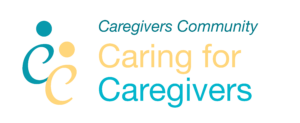** Edited by
Baha and Margaret Habashy
The Challenge
How do you win when there is no time?
Time is our only finite resource. Caregivers face a scarcity of personal time as they navigate a life consumed by caregiving responsibilities. Striking a balance becomes an ongoing challenge in their daily routine, emphasizing the importance of time management and self-care.
Meet Emma
Emma and Jack’s 45-year love story faced an unforeseen challenge – cancer. Emma, the devoted wife, navigated a whirlwind of caregiving and appointments, with time slipping away like sand through her fingers. The delicate balance between being a wife and a caregiver proved elusive, but within the struggle, Emma found solace in stolen moments – shared smiles and whispered “I love you.”
Time, once an ally, became a scarce resource. Emma yearned for moments to rediscover her own laughter buried beneath the weight of responsibilities.
Yet, in caring for Jack, she discovered strength and a deep reservoir of love, learning that love could navigate even the choppiest waters. As the sun dipped low in their small town, Emma held onto the precious moments, cherishing the love that time could not steal away.
BIBLICAL INSIGHTS
Psalm 34:18: “The Lord is close to the brokenhearted and saves those who are crushed in spirit.”
Caregivers often bear emotional burdens while attending to their loved ones. This verse reassures them that in their moments of brokenness, God is near, offering comfort and salvation for their crushed spirits.
Isaiah 40:31: “But those who hope in the Lord will renew their strength. They will soar on wings like eagles; they will run and not grow weary; they will walk and not be faint.”
This verse speaks to the renewal of strength that caregivers can find through their hope and trust in the Lord. Even in the face of exhaustion, God promises a source of energy and endurance.
Matthew 11:28: “Come to me, all you who are weary and burdened, and I will give you rest.”
Caregivers, often weary from the demands of their role, can find solace in Jesus’ invitation to find rest in Him. It encourages caregivers to turn to God for relief, trusting in His promise of rest for their tired souls.
Philippians 4:6-7: “Do not be anxious about anything, but in every situation, by prayer and petition, with thanksgiving, present your requests to God. And the peace of God, which transcends all understanding, will guard your hearts and your minds in Christ Jesus.”
Caregivers facing anxiety and uncertainty can find reassurance in this verse. By turning to prayer and presenting their concerns to God, they open themselves to the peace that surpasses understanding, guarding their hearts and minds as they navigate the challenges of caregiving.
THOUGHTS AND TIPS
- Delegate Tasks: Example: Ask a family member or friend to handle grocery shopping or meal preparation, allowing the caregiver more time for self-care or rest.
- Schedule Regular Breaks: Example: Plan short breaks throughout the day to engage in activities like reading, stretching, or a brief walk, promoting mental and physical well-being.
- Seek Professional Support: Example: Consult a counselor or therapist to discuss emotions and stressors associated with caregiving, providing a healthy outlet for emotional well-being.
- Create a Support Network: Example: Connect with local caregiver support groups or online communities to share experiences, advice, and emotional support with others facing similar challenges.
- Utilize Respite Care: Example: Explore respite care services that offer temporary relief, providing the caregiver with essential downtime to recharge and attend to personal needs.
- Set Realistic Expectations: Example: Establish achievable daily goals, understanding that it’s okay to prioritize tasks and adjust expectations based on the ever-changing needs of the care recipient.
- Time Management: Example: Develop a daily schedule that includes caregiving responsibilities, self-care, and breaks, ensuring a balanced distribution of time and energy.
- Explore Community Resources: Example: Investigate local organizations that offer support to caregivers, such as meal delivery services, transportation assistance, or respite care programs.
- Embrace Technology: Example: Use caregiving apps or online platforms to streamline communication with healthcare providers, track medications, and manage appointments more efficiently.
- Take Advantage of Assistive Devices: Example: Integrate assistive devices and home modifications to enhance the care recipient’s independence and reduce physical strain on the caregiver.
- Financial Planning: Example: Consult a financial advisor to explore available resources, insurance coverage, and potential financial assistance programs, ensuring stability during the caregiving journey.
- Prioritize Self-Care: Example: Dedicate time for activities that bring joy and relaxation, such as reading a book or taking a bath, promoting caregiver well-being.
- Educate Yourself: Example: Attend workshops or online courses to enhance caregiving skills, gain insights into effective communication, and stay informed about the care recipient’s condition.
- Stay Organized: Example: Maintain a centralized system for medical records, important contacts, and caregiving schedules, reducing stress and enhancing efficiency in managing responsibilities.
- Celebrate Milestones: Example: Acknowledge and celebrate small victories, such as completing a challenging caregiving task or achieving a positive health outcome, fostering a sense of accomplishment.
- Promote Independence: Example: Encourage the care recipient’s independence by involving them in decision-making, allowing them to maintain a sense of control over their life despite the challenges.
- Stay Socially Connected: Example: Foster relationships with friends and family through regular communication, whether in person, over the phone, or through virtual platforms, combatting caregiver isolation.
- Plan for Emergencies: Example: Develop an emergency plan that includes contact information for healthcare providers, medications, and important documents, ensuring preparedness for unexpected situations.
- Practice Gratitude: Example: Cultivate a habit of expressing gratitude, whether through a journal or verbal affirmations, focusing on positive aspects to counterbalance the challenges of caregiving.
- Encourage Open Communication: Example: Foster honest and open communication with the care recipient, family members, and healthcare professionals, ensuring that everyone is on the same page regarding care plans and expectations.
At our Community Forum you post your prayer requests, gain spiritual guidance, seek emotional support, and get answers to your caregiving questions. Moderated by qualified Christians, pastors, and healthcare professionals, it is our gift to serve you.
** Note: This blog content was developed with help from ChatGPT 3.5. The story, names and images are for illustration only.






Leave a Reply
Want to join the discussion?Feel free to contribute!